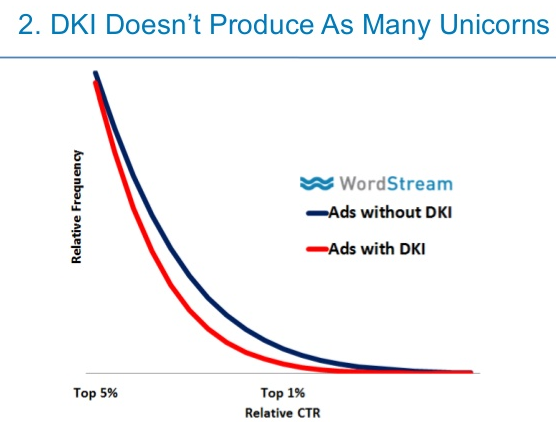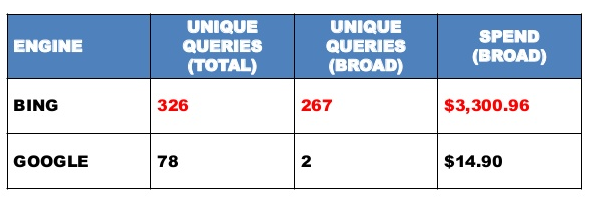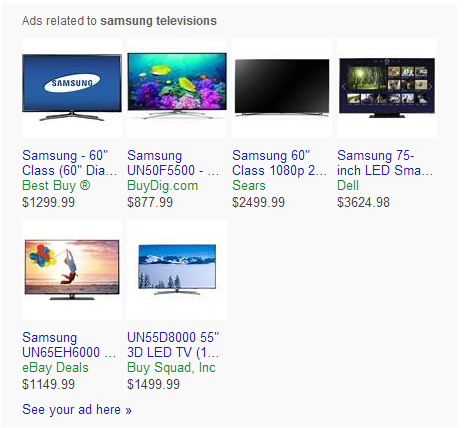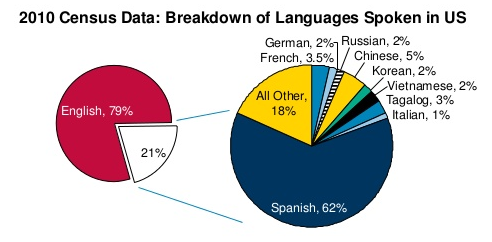Unicorn Accounts Don’t Use DKI & 9 Other PPC Lessons From SMX West
Freshly back from the excitement of SMX West in beautiful San Jose and full to the brim with insightful PPC notes (if Evernote can technically get full to the brim), I’ve set about compiling a list of my top PPC-related takeaways from the event. The following are the ten that most caught my imagination. 1. […]
Freshly back from the excitement of SMX West in beautiful San Jose and full to the brim with insightful PPC notes (if Evernote can technically get full to the brim), I’ve set about compiling a list of my top PPC-related takeaways from the event.
The following are the ten that most caught my imagination.
1. Good Accounts Use Dynamic Keyword Insertion, The Best Don’t
In his excellent presentation on former PPC Best Practices gone wild, Larry Kim outlined a great way to think about ads that make use of Dynamic Keyword Insertion.
Essentially, DKI is a great way to bump your ads into “above average” relative click-through-rate territory. I’ve never been a huge fan of using dynamic keyword insertion simply because of the number of times I’ve seen it go wrong — just search Google for [add your keywords here] if you want some horrific examples. (Please do search for this; it’s hilarious.)
Still, it does seem that the benefit of DKI headlines translates into good CTRs (at least according to WordStream’s data) and therefore, good quality scores and cheaper clicks.

However, for those looking to join the elite — the crème de la crème of AdWords advertisers — writing your own ad copy is still the way to go.
Larry calls these “unicorn accounts,” the ones with CTRs so far beyond the competition as to be rare and mysterious. These are accounts where the ads are so good that they can beat the competition by six times and up. This translates into very high quality scores, great average positions and very cheap clicks.
Therefore, it seems like we should all be following a new pattern with our ad testing. Start with DKI ads running in every ad group, then use all of our creative brainpower to write unique and exciting non-DKI ads to go up against them.
This way, we can ensure our baseline relative CTR is likely to be above average while giving us some extra freedom to be the best marketers we can be, developing powerful “unicorn” ad copy that resonates at a level beyond just a correlation to what our searcher is interested in.
2. Dynamic Search Ads Can Be Very Effective
Up until last week, I had never really been a fan of Dynamic Search Ads. However, Matt Umbro put forward a really strong case for trying them out on some of my e-commerce accounts.
For those of you unfamiliar with DSAs, they work as a kind of landing page broad match, with Google automatically showing ads on searches it thinks are relevant to pages on your site. This is most useful for big e-commerce websites with tens of thousands of products that are nigh on impossible to keep track of.
By enabling DSAs, you can maintain full coverage on the products you haven’t had time to build into your account just yet. It also takes away some of the arduous tasks of keeping track of which specific products you are and are not selling.
The trick is to set very low bids and to use DSA as a giant net to capture those cheap, long-tail clicks you weren’t able to focus much time on before. We set this up immediately after getting back from SMX, and we’re already seeing conversions at better than our return-on-ad-spend target.
If that didn’t convince you, something I thought was pretty cool was that DSAs can generate headlines way longer than the standard 25 characters. For specific, long-winded product names, this is a huge plus.
3. Bing Broad Match Is Broader Than Google Broad Match
There were two interesting takeaways I had here. The first is that for specific products, Bing is a lot broader than Google with its broad match. Take a look at the example in the table below:
While not necessarily a bad thing, it was a wake-up call for me to jump back into my Bing search query data (which has been neatly expanded recently) and make sure that my brand terms aren’t picking up non-branded traffic.
The second revelation was that Bing broad match uses data from your ad copy to decide on relevant search queries. This is something to watch out for in those ad groups where your ads are using general sales copy rather than anything super specific.
4. Location Extensions Borrow From Call Extensions
When you use call extensions and location extensions in the same campaign, your location extensions will prioritize showing the phone number from your call extension over the one specifically in the location extension.
For anyone else out there who, like me, relies heavily on phone tracking in their accounts, this was helpful to learn — especially as I had been mistakenly assuming I just wasn’t getting calls from the location extension tracking numbers I had set up.
5. Mobile Sitelinks Should Be Limited To 17 Characters
Ever wondered how to make sure your mobile Sitelinks all fit on the page? Wonder no longer, the magic number of characters is 17.
For regular Sitelinks, you might also want to stick to 22 characters to make sure you get 4 showing up when limited to just one line. Along these same lines, writing mobile preferred ads with just 60 characters helps you avoid having your ad copy truncated on those small smartphone screens.
6. 26 Percent of Accounts Use No Ad Extensions… Still
This statistic comes courtesy of Marin Software. This seems crazy to me given the impact to CTR from simply turning Sitelinks on — without doubt the single quickest, easiest thing you can do to improve your quality score overnight.
7. Bing Ads Let You Use Exclamation Marks In Headlines!
I did not know this…
8. Bing Product Ads Are Coming To The Masses!
Product Listing Ads (PLAs) have undoubtedly been a huge success for Google, and the good news is that Bing will be following suit by bringing their Product Ads offering out of beta very soon.
9. Target All The Languages!
Did you know that 21% of people in the US don’t speak English as their first language? By making sure that your language preferences aren’t set to English-only, you can broaden your campaign reach significantly.
Remember, Spanish speakers in the US reading Spanish-language sites are still likely to understand your English-language ads. ( This applies mainly on the Display Network side of things.)
10. AdWords Query Data Isn’t Going Away Any Time Soon (Is It?!)
After the Tuesday keynote discussion with Google search chief Amit Singhal, the playground whispers started up that Google might be taking away search query data for PPC advertisers, similar to what they did to organic search half a year ago.
“Evidence” cited included AdWords announcing “new innovations” to come on April 22, a load of news buzz around the fact that Google will be pushing their secure search global, as well as the following quote from Amit Singhal:
Over a period of time, we’ve been looking at this issue. We’ve heard from our users that they do want their searches secure — this is really important to users. We like how things have gone on with the organic side of search. So, in the coming weeks and months, we’re looking at better solutions for this. We have nothing to announce, but we have discussed with the ads side about how we should handle this in the future.
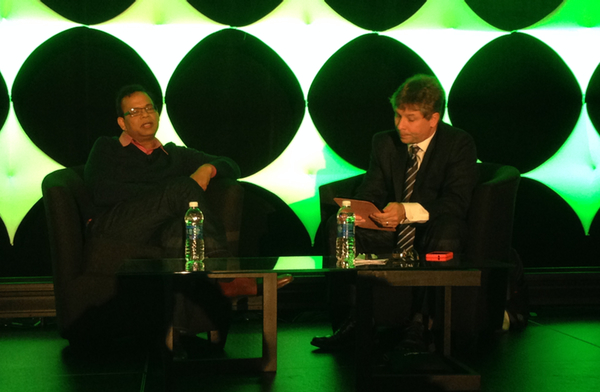
Amit Singhal and Danny Sullivan chat about the future of Google search
To my ears, Singhal seemed to refute the possibility of removing search query data from advertisers, explaining the need to be aware of the cause of certain traffic spikes.
He gave the example of an advertiser in the travel sector suddenly getting high click volumes on their Malaysia Airlines ads in the wake of the news interest surrounding the tragedy of flight 370. Without search query data, the advertiser wouldn’t be able to diagnose the cause of their spending spike and set appropriate controls in place moving forward.
My impression was that Google isn’t yet in a place where they can take away search query data without hurting their relationship with advertisers.
There was a ton going on at SMX, and I wasn’t able to see every presentation — so feel free to share your own personal top takeaways in the comments below. I’d love to hear from you!
Contributing authors are invited to create content for Search Engine Land and are chosen for their expertise and contribution to the search community. Our contributors work under the oversight of the editorial staff and contributions are checked for quality and relevance to our readers. The opinions they express are their own.
Related stories
New on Search Engine Land
